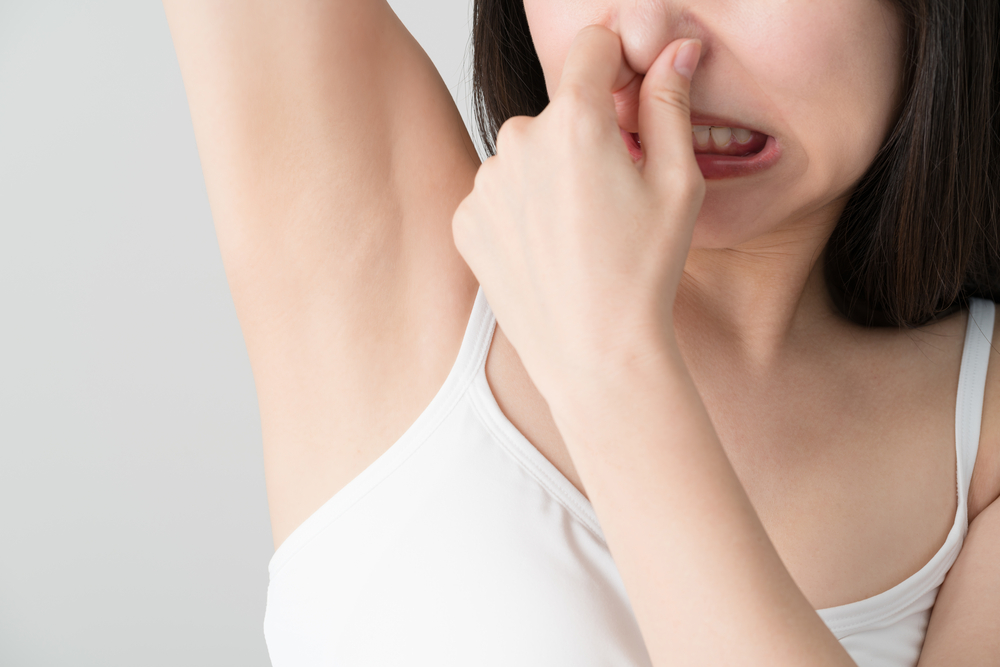6 Tips To Cope With Body Ordor

Body odor is what you smell when your sweat comes in contact with the bacteria on your skin.
Sweat itself doesn’t smell, but when the bacteria on your skin mix with your sweat, it causes an odor.
Body odor can smell sweet, sour, tangy or like onions. The amount you sweat doesn’t necessarily impact your body odor. That’s why a person can have an unpleasant body odor but not be sweaty.
Conversely, a person can sweat excessively but not smell. This is because body odor is a result of the type of bacteria on your skin and how that bacteria interacts with sweat, not the sweat itself.
READ ALSO: 5 Benefits Of mayonnaise For Hair
The human body can produce a range of substances that carry a smell, known as odorants. Many of these are important for regular bodily function and, in small quantities, do not lead to unpleasant odors. However, an excessive accumulation of these compounds on the skin can cause noticeable smells.
Body odor usually becomes more evident during puberty, as hormones and sweat glands become more active at this time. People with obesity and individuals with certain medical conditions, such as diabetes, are also more susceptible to having body odor.
Sweat itself is virtually odorless to humans. However, the rapid multiplication of bacteria and their breaking down of sweat into acids can cause unpleasant smells. As a result, people who sweat a lot such as those with hyperhidrosis may be more susceptible to developing body odor.
Body odor is most likely to occur in the following places:
- the feet
- the groin
- the armpits
- the genitals
- pubic and other hair
- the belly button
- the anus
- behind the ears
A person’s diet, natal sex, health conditions, and medications help create a unique body odor.
1. Keep Yourself Squeaky Clean
Shower at least once a day, and you’ll wash away sweat and get rid of some of the bacteria on your skin.
Sweat by itself is basically odorless. But when the bacteria that live on your skin mix with sweat, they multiply quickly and raise quite a stink.
2. Use Antibacterial Soap
Washing thoroughly with an antibacterial soap bar will help get rid of some bacteria, which can help with the odor.
Look for the word “antibacterial” on the soap’s packaging.
3. Towel Off Well
Once you’ve showered, dry yourself completely, paying close attention to any areas where you sweat a lot.
If your skin is dry, it’s harder for bacteria that cause body odor to breed on it.
4. Use Antiperspirants
Once you’re clean and dry, use a strong antiperspirant on your underarms. These have aluminum chloride, a chemical that helps keep sweat at bay, and they often also have a deodorant in them. Use it twice a day – once in the morning and once in the evening.
You don’t need a prescription to get a powerful antiperspirant. Look for ones that say they’re higher-strength.
5. Keep Your Clothes Clean
Change clothes often when you’re sweating heavily. Fresh clothes help keep body odor down.
Be sure to change your socks as well, especially if you tend to have foot odor. Use deodorant powders in your shoes, replace insoles often, and go barefoot when possible.
6. Cut Out or Cut Back on Certain Foods or Drinks
What you eat affects your body odor. Foods that tend to make you sweat more, such as hot peppers or other spicy foods, might also lead to body odor. And the aroma of foods like onions or garlic can be carried in your sweat. Drinks with caffeine or alcohol may also make you sweat more.









